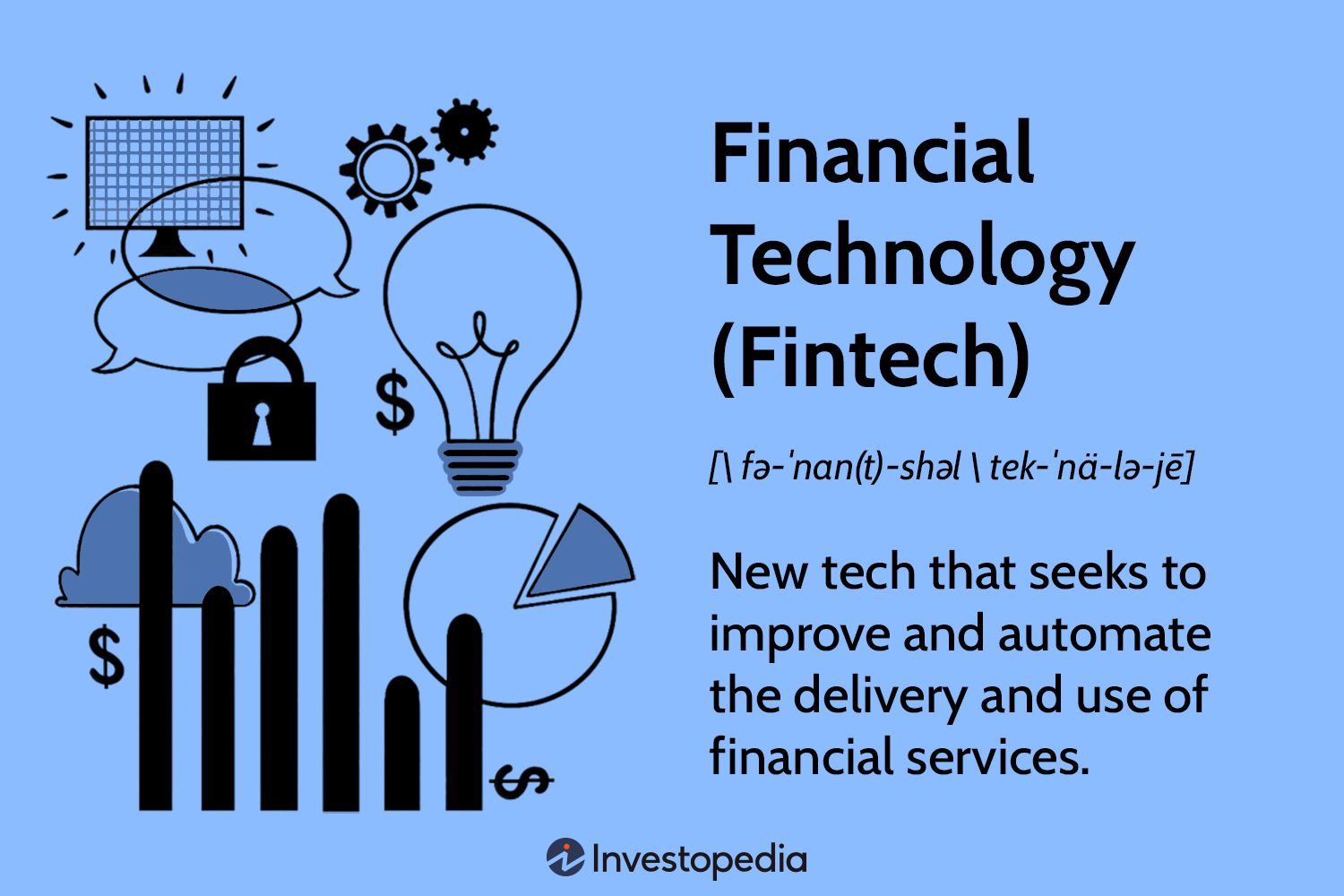Fintech in 2025 focuses on innovations like artificial intelligence, blockchain, and embedded finance. These technologies enhance efficiency, accessibility, and user experience in financial services.
As we move into 2025, fintech continues to redefine the landscape of financial services. The integration of cutting-edge technologies such as artificial intelligence and blockchain is transforming traditional banking. These innovations enhance efficiency and provide consumers with unprecedented access to financial products.
Embedded finance allows businesses to offer financial services directly within their platforms, creating seamless user experiences. Hyper-automation streamlines operations, reducing costs and improving service delivery. Understanding these key innovations is crucial for navigating the evolving financial ecosystem and leveraging opportunities for growth and efficiency in the coming year. Embracing these changes can significantly impact businesses and consumers alike.
The Evolution Of Fintech
Fintech represents a groundbreaking shift in how we engage with financial services. It merges technology with finance, simplifying tasks that once required significant time and effort. This evolution has reshaped the landscape, creating new opportunities for consumers and businesses alike. In 2025, the focus on innovation continues to drive change in the industry.
Milestones In Financial Technology
Understanding the key milestones in fintech helps us appreciate its rapid development. Here are some critical milestones:
| Year | Milestone |
|---|---|
| 1950s | Introduction of credit cards |
| 1980s | Automated Teller Machines (ATMs) become common |
| 1990s | Online banking starts |
| 2008 | Bitcoin and blockchain technology emerge |
| 2010s | Rise of mobile payment apps |
| 2020s | AI and machine learning enhance financial services |
From Traditional Banking To Digital Solutions
The journey from traditional banking to digital solutions has transformed how we manage money. Key factors in this transition include:
- Accessibility: Digital platforms are available 24/7.
- Convenience: Transactions can occur anytime, anywhere.
- Cost-effectiveness: Lower fees due to reduced overhead.
- Personalization: Tailored services based on user data.
Fintech has replaced many traditional banking practices. Consumers now expect seamless online experiences. Security measures have also evolved, ensuring safer transactions.
As fintech continues to grow, it will reshape our financial interactions. The future promises even more innovations that will benefit users.
Credit: investopedia.com
Key Drivers Of Fintech Growth
The fintech sector is evolving rapidly. Several factors are driving this growth. Understanding these drivers can help businesses and consumers navigate the financial landscape effectively. Let’s explore the key drivers of fintech growth in 2025.
Innovative Technologies Paving The Way
Technological advancements are at the forefront of fintech growth. Here are some critical innovations:
- Artificial Intelligence (AI): Improves customer service and personalizes experiences.
- Blockchain: Enhances security and transparency in transactions.
- Big Data: Analyzes consumer behavior for better decision-making.
- Mobile Technology: Facilitates easy access to financial services on-the-go.
These technologies create new opportunities. They allow companies to offer better services. Innovation drives competition, leading to improved financial products.
Consumer Demand For Convenience And Efficiency
Consumers today prioritize convenience and speed. They expect seamless financial services. Key factors influencing this demand include:
- Instant Payments: Customers want quick transaction processing.
- User-Friendly Interfaces: Easy navigation improves user experience.
- 24/7 Access: Customers desire round-the-clock service availability.
- Personalized Services: Tailored offerings enhance customer satisfaction.
As consumer preferences evolve, fintech companies adapt. Meeting these demands is crucial for sustained growth. This trend signals a shift towards customer-centric financial solutions.
Fintech’s Impact On Financial Services
Fintech is reshaping financial services. It combines technology with finance. This fusion creates new opportunities for users. From improved accessibility to streamlined operations, fintech is changing how we manage money. Understanding these impacts is essential for navigating today’s financial landscape.
Enhancing Access To Financial Tools
Fintech innovations break down barriers in finance. They offer users easy access to financial tools. Here are some key benefits:
- Mobile Banking: Users can manage accounts from anywhere.
- Microloans: Small loans help underserved populations.
- Investment Apps: Investing is simple and user-friendly.
These tools empower individuals. They allow users to take control of their finances. Many fintech companies focus on inclusivity. They aim to serve those often left behind by traditional banks.
Streamlining Operations With Automation
Automation plays a vital role in fintech. It simplifies many financial processes. Here are a few key areas where automation shines:
| Process | Benefit |
|---|---|
| Payments | Faster transactions with fewer errors. |
| Customer Service | Chatbots provide 24/7 support. |
| Fraud Detection | Real-time monitoring improves security. |
Automation reduces costs and improves efficiency. Financial institutions can focus on customer satisfaction. This shift transforms the customer experience. Fintech’s automation opens doors to better service.
Artificial Intelligence In Fintech
Artificial Intelligence (AI) is revolutionizing the fintech landscape. It enhances efficiency and accessibility in financial services. AI tools analyze vast data quickly. This leads to smarter financial decisions. Businesses use AI to improve customer interactions. Innovations in AI are setting new standards in finance.
Ai-powered Personal Finance
AI is transforming personal finance management. Smart algorithms help users track expenses. They provide personalized budgeting advice. Here are some key benefits of AI in personal finance:
- Automated Budgeting: AI analyzes spending patterns.
- Real-Time Notifications: Alerts for unusual transactions.
- Investment Insights: Tailored suggestions based on goals.
- Debt Management: Strategies for paying down debts.
Users can access AI-powered apps on their smartphones. These apps make financial management easier. They enable better control over personal finances.
Transforming Decision-making With Ai
AI enhances decision-making in finance. It uses data to forecast trends accurately. Here’s how AI impacts financial decisions:
| AI Application | Impact on Decision-Making |
|---|---|
| Risk Assessment | Identifies potential risks early. |
| Fraud Detection | Recognizes suspicious activities instantly. |
| Customer Insights | Understands customer preferences accurately. |
| Market Analysis | Predicts market shifts effectively. |
AI helps businesses make informed choices. It reduces human error and increases efficiency. With AI, financial services can adapt quickly to changes.
The Rise Of Digital-only Banking
Digital-only banking is reshaping the financial services landscape. Traditional banks are no longer the only option. Consumers seek convenience and speed. With the rise of digital platforms, banking is now accessible on mobile devices. Customers can manage their finances anytime and anywhere.
Digital-only banks eliminate the need for physical branches. They focus on user-friendly experiences. This shift reflects changing consumer preferences. People want quick solutions without waiting in line. As we move through 2025, this trend continues to grow.
Benefits Of Branchless Banking
- 24/7 Access: Customers can bank anytime.
- Lower Fees: Digital banks often charge fewer fees.
- Speed: Transactions happen instantly.
- User-Friendly Interfaces: Apps are easy to navigate.
- Enhanced Security: Advanced technology protects customer data.
| Benefit | Description |
|---|---|
| Cost-Effective | Lower operational costs lead to reduced fees. |
| Convenience | Access services without visiting a branch. |
| Personalized Services | AI-driven insights offer tailored experiences. |
Challenges In A Digital-only Landscape
- Cybersecurity Threats: Increased risk of data breaches.
- Technology Dependence: Services rely heavily on technology.
- Limited Personal Interaction: Less face-to-face communication.
- Regulatory Compliance: Adhering to laws can be challenging.
- Financial Literacy: Some users may struggle with digital tools.
Digital-only banking offers many benefits. However, challenges remain. Understanding these factors is crucial for consumers.
Regulatory Compliance And Fintech
Regulatory compliance plays a crucial role in the fintech landscape. As fintech companies innovate, they must also navigate a complex web of regulations. This balance ensures consumer protection and market stability while fostering innovation. Understanding how regulatory compliance impacts fintech is essential for success in 2025.
Balancing Innovation With Regulation
Fintech companies thrive on innovation. Yet, they must align their operations with existing regulations. This balance can be challenging but is necessary for sustainable growth.
- Innovation: New technologies change the way financial services operate.
- Regulation: Authorities impose rules to protect consumers and markets.
- Balance: Companies must adapt to both drive innovation and comply with laws.
Here are key considerations:
- Understanding regulatory requirements.
- Implementing compliance strategies early.
- Engaging with regulatory bodies for guidance.
Finding this balance is crucial for fintech companies in 2025.
The Role Of Regtech In 2025
RegTech, short for regulatory technology, is transforming how companies handle compliance. It uses technology to simplify compliance processes. This innovation enhances efficiency and reduces costs.
| RegTech Solutions | Benefits |
|---|---|
| Automated Reporting | Reduces manual errors and saves time. |
| Real-time Monitoring | Identifies compliance issues immediately. |
| Data Analytics | Improves understanding of regulatory changes. |
In 2025, RegTech will play a vital role in helping fintech companies:
- Stay compliant with evolving regulations.
- Enhance operational efficiency.
- Focus on innovation without compromising on compliance.
Embracing RegTech is essential for fintech leaders aiming for growth.
Fintech Innovations In 2025
The year 2025 marks a significant turning point in the world of financial technology. As we embrace new technologies, fintech is evolving rapidly. Innovations are reshaping the way we manage money, interact with banks, and invest. Key trends are emerging, driving financial services into a new era of efficiency and accessibility.
Blockchain Technology And Its Uses
Blockchain technology is revolutionizing the financial sector. Its decentralized nature enhances security and transparency. Here are some notable uses:
- Cryptocurrencies: Digital currencies allow peer-to-peer transactions.
- Smart Contracts: Automated contracts execute when conditions are met.
- Supply Chain Management: Tracking products ensures authenticity.
- Identity Verification: Secure digital identities reduce fraud.
In 2025, businesses leverage blockchain for various applications. It improves trust between parties, reduces costs, and increases efficiency. The future of finance is bright with blockchain.
Iot And Finance: A Connected Future
The Internet of Things (IoT) connects devices, creating new opportunities in finance. Smart devices collect data to improve financial services. Here’s how IoT is changing finance:
- Personalized Services: Tailored offerings based on user data.
- Real-Time Monitoring: Instant insights into spending habits.
- Automated Payments: Devices can execute transactions automatically.
- Risk Management: Data analytics help predict financial risks.
The integration of IoT with finance fosters a more connected world. Consumers enjoy seamless experiences. Financial institutions gain insights to enhance their services.
| Innovation | Impact on Finance |
|---|---|
| Blockchain | Increases security and transparency |
| IoT | Enhances personalization and automation |
Fintech innovations in 2025 promise a future that is efficient and user-friendly. As technology continues to advance, the financial landscape will become even more dynamic.
Fintech’s Role In Financial Stability
Fintech plays a crucial role in maintaining financial stability. It combines technology and finance to create innovative solutions. These solutions help individuals and businesses navigate uncertain economic conditions. In 2025, fintech innovations will continue to support stability in various ways.
Supporting Economies In Uncertain Times
During economic downturns, fintech provides essential services. It offers quick access to funds and financial advice. Here are some ways fintech supports economies:
- Access to Credit: Fintech platforms offer faster loan approvals.
- Financial Education: Many apps provide valuable financial guidance.
- Microfinancing: Small loans help entrepreneurs start businesses.
These services empower individuals and small businesses. They create jobs and stimulate local economies. Fintech reduces barriers to financial access.
Predictive Analytics For Risk Management
Predictive analytics is transforming risk management in finance. Fintech uses data to predict future trends and risks. This helps businesses make informed decisions. Some key benefits include:
| Benefit | Description |
|---|---|
| Enhanced Decision-Making | Data-driven insights lead to better financial choices. |
| Fraud Detection | Real-time monitoring identifies suspicious activities. |
| Regulatory Compliance | Analytics help firms stay compliant with laws. |
Fintech companies leverage predictive analytics to minimize risks. This results in safer financial environments for consumers and businesses alike.
The Future Of Fintech
Fintech is reshaping the financial landscape as we move into 2025. This fusion of finance and technology brings efficiency and accessibility. Emerging technologies are making financial services faster and more user-friendly. Understanding these changes is crucial for businesses and consumers alike.
Emerging Trends To Watch
Several trends are set to dominate the fintech space in 2025:
- Artificial Intelligence (AI): AI enhances customer service and fraud detection.
- Blockchain Technology: It ensures secure and transparent transactions.
- Digital Banking: More consumers prefer online-only banks for convenience.
- Robo-Advisors: Automated investment services are gaining traction.
- RegTech: Regulatory technology helps firms comply efficiently.
These trends focus on improving user experiences. They also drive innovation in financial services.
The Long-term Vision Of Fintech
Fintech aims to create a seamless financial ecosystem. The long-term vision includes:
- Greater Financial Inclusion: Reaching underserved communities worldwide.
- Enhanced Security: Implementing advanced security measures for user data.
- Personalized Services: Tailoring financial products to individual needs.
- Sustainable Finance: Promoting eco-friendly investment options.
- Global Accessibility: Making financial services available to everyone.
Investing in technology will drive these changes. Companies must adapt to thrive in this evolving landscape. The future of fintech promises exciting opportunities for innovation and growth.
:max_bytes(150000):strip_icc()/insurtech.asp-final-d0c67eaba6084fd1a115a21cb55768ab.png)
Credit: www.investopedia.com
Challenges Facing Fintech
The fintech industry is rapidly evolving. However, it faces significant challenges that could hinder its growth. Understanding these challenges is crucial for stakeholders. They include security issues, equitable access, and regulatory hurdles. Let’s delve deeper into these key challenges.
Security Concerns In A Digital Age
As fintech integrates technology with finance, security becomes a top priority. Cyberattacks are increasing, targeting financial data and personal information.
- Phishing scams
- Data breaches
- Identity theft
Organizations must invest in robust security measures. This includes:
- Advanced encryption techniques
- Regular security audits
- Employee training on cybersecurity
Failure to address these concerns can lead to loss of customer trust. Trust is essential for fintech to thrive.
Ensuring Equitable Access To Technology
Access to technology varies widely across different demographics. Many people lack the necessary tools or skills to use fintech services.
| Demographic | Access Level |
|---|---|
| Urban Areas | High |
| Rural Areas | Low |
| Low-Income Households | Very Low |
Fintech companies must bridge this gap. Strategies include:
- Providing affordable internet access
- Offering user-friendly platforms
- Conducting community outreach programs
Equitable access ensures that everyone benefits from fintech innovations. It fosters inclusivity and drives overall growth in the financial sector.

Credit: ubiminds.com
Frequently Asked Questions
What Is The Future Of Fintech In 2025?
The future of fintech in 2025 will focus on AI integration, personalized financial services, and enhanced security. Expect growth in digital banking, blockchain adoption, and regulatory advancements. These trends will improve user experience and accessibility, driving innovation across the financial landscape.
What Is The Role Of Fintech In The Future Of Financial Services?
Fintech revolutionizes financial services by enhancing efficiency, accessibility, and user experience. It integrates advanced technology to automate processes, reduce costs, and improve customer engagement. Fintech’s role in the future includes driving innovation, increasing competition, and providing tailored financial solutions to meet evolving consumer needs.
What Are The 5 D’s Of Fintech?
The 5 D’s of fintech are: 1. Digitalization: Transforming traditional financial services into digital formats. 2. Disruption: Challenging existing market players and practices. 3. Decentralization: Reducing reliance on central authorities. 4. Democratization: Making financial services accessible to everyone. 5. Data: Utilizing data analytics for informed decision-making.
What Are The 3 Pillars Of Fintech?
The three pillars of fintech are innovation, customer centricity, and regulatory compliance. Innovation drives technological advancements, customer centricity focuses on enhancing user experiences, and regulatory compliance ensures adherence to financial laws. Together, these pillars support the growth and stability of the fintech industry.
Conclusion
Fintech is revolutionizing financial services in 2025. Key innovations enhance accessibility, efficiency, and user experience. As technology continues to evolve, staying informed about these trends is crucial. Embracing these changes will empower consumers and businesses alike. The future of finance is bright, driven by innovation and a commitment to better services for all.

